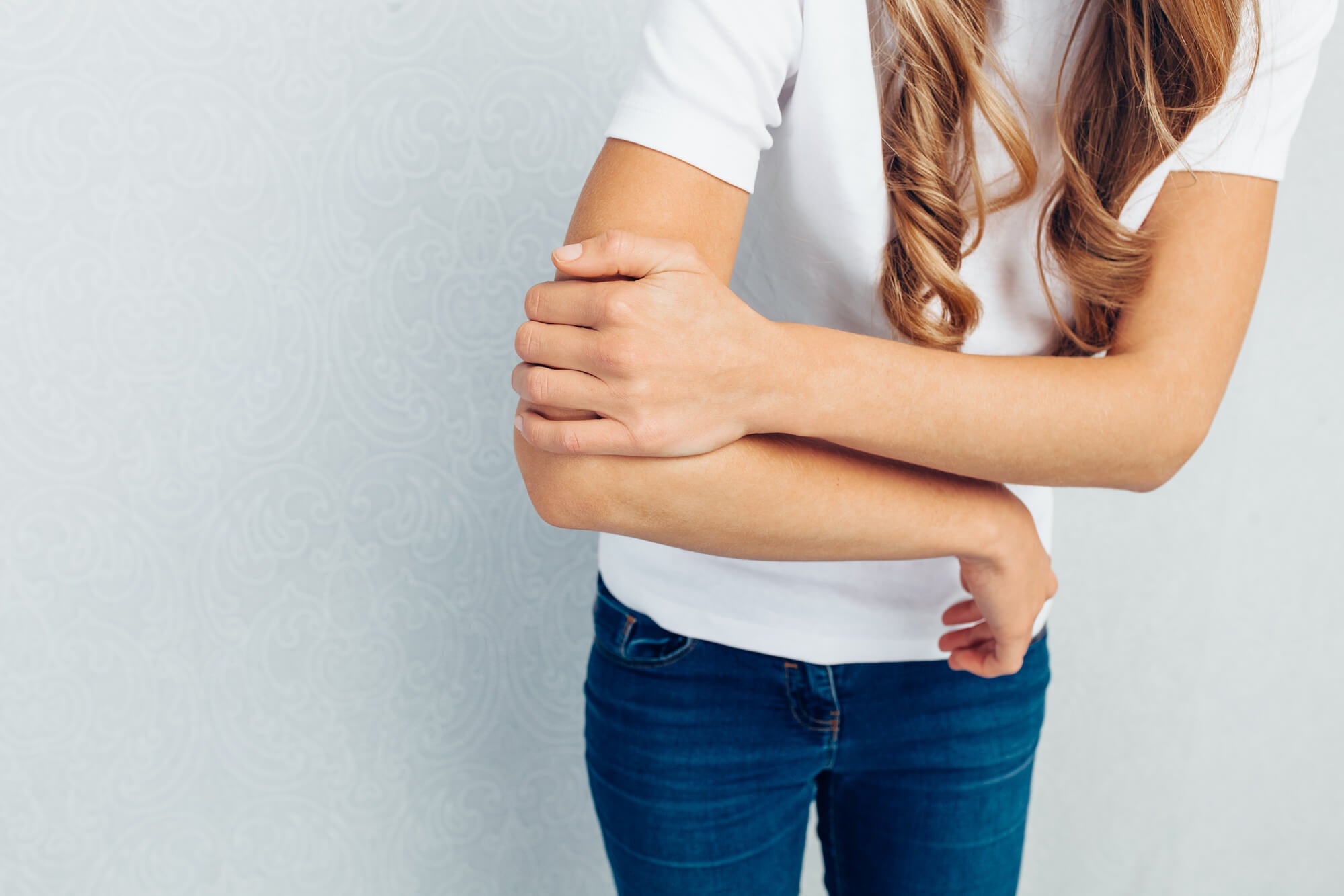

Why does my bruise itch?
Bruises: everyone gets them, nobody likes them. But do you really know what happens to your body when you get a bruise? In this article we are going to discuss the science behind bruises, why they get so itchy and what you can do to help stop that itch!
What is a bruise?
Let’s quickly define bruises on a scientific level. Bruising happens when you have an injury [also called blunt trauma] that ruptures the small blood cells allowing the blood to seep into the surrounding tissue. Other names include hematoma and contusion.
Fun fact: bruises don’t just happen on your skin, it can happen on your brain or bones, too!
Why do bruises hurt?
When the red blood cells rupture, the brain tells your body to send in white blood cells [the good guys] to start “eating up” all the hemoglobin that is released when the red blood cells initially broke. And as they are fixing the problem, the white blood cells also release substances that tell the body that there is trauma by causing it to swell up and become inflamed.
The white blood cells are essentially telling your body through inflammation and pain that the area is hurt and that you should be careful not to make it worse.
Why do bruises itch?
One of the substances that the white blood cells release into your body is called histamine. Histamine is actually one of the reasons the area becomes inflamed in the first place, and simply put, histamine is known to cause itching. However, one doctor believes that there is another reason that bruises itch aside from histamine, which happens at the beginning of the bruising process versus the end, when most of the itching occurs. He states that the bilirubin, a byproduct of the hemoglobin breaking down, and also the reason the bruise turns yellow, is the main culprit for the itching. Increased levels of bilirubin in your bloodstream is known to cause intense itching on the skin. It seems to be as simple as that, folks!
Now while all we ever want to do is scratch our bruises to oblivion to stop the itch, we encourage you to restrain yourself, because it can actually make it worse. If you rub a bruise, you are likely to break more red blood cells which will only worsen the bruise and actually make it look ickier than before!
So here are a few ways to help make the bruise go away faster, and therefore, make the itch stop faster, too:
- Ice on and off for 10 minute spurts to help the swelling and inflammation go down and heal the bruise quicker.
- Anti-inflammatories will also help with the swelling and help mitigate some of the pain.
- Blossom’s Hydration Repair Honey Salve will help calm the itch allowing you to withhold from rubbing the bruise, and in term, it will help it heal faster. In addition to helping with the itch, the organic Manuka Honey will also help speed up the healing process due to its strong anti-inflammatory properties and nourishing benefits.
And as always, the Hydration Repair Honey Salve is backed by a 30 day money back guarantee if you don’t see the results that you’re looking for! We always put results and your satisfaction first!
Click here to see how how the Hydration Repair Honey Salve can help soothe your itchy bruise!
.
.
.
Reference: Dr. Rob Lamberts
